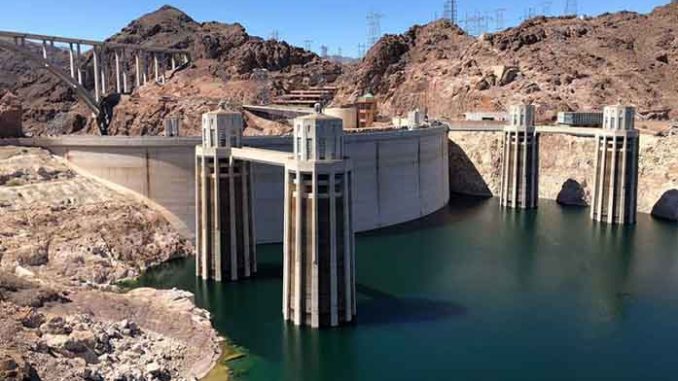
By Luke Runyon KUNCLAS VEGAS – Water leaders throughout the West now have a hard deadline to finish deals that would keep the Colorado River’s biggest reservoirs from dropping to deadpool levels – the point at which water no longer can be released.
The nation’s top water official is giving leaders of the seven states that rely on the river until Jan. 31 to finalize a Drought Contingency Plan. The combination of multistate agreements would change how reservoirs are operated and force earlier water cutbacks within the river’s lower basin states of Arizona, California and Nevada as reservoirs drop.
To a gilded Caesars Palace conference room of more than 1,000 attendees of the annual Colorado River conference, the message from U.S. Bureau of Reclamation Commissioner Brenda Burman was simple: Finish these deals before the federal government is forced to step in.
“We are teetering on the brink of shortage today,” Burman said Thursday. “And we see real risk of rapid declines in reservoir elevations. We all know it is high time to wrap up these efforts.”
Out of the seven U.S. states that pull water from the river, Arizona has struggled the most to figure out which water users would see cutbacks first, by how much and under what conditions. The debate has pitted farmers against the cities, home builders and tribes that rely on deliveries of Colorado River water by way of a 336-mile canal.
Burman said completion of the drought plans became more urgent after the record hot and dry conditions within the Colorado River Basin this past year. For portions of Colorado and Arizona, summer 2018 was was the hottest and driest on the books. Snowpack, which provides the majority of the runoff that ends up in reservoirs, this season is hovering around average so far.
A final deal will require federal legislation and approval by the Arizona Legislature before it can be put in action.
This story is part of a project covering the Colorado River, produced by KUNC and supported through a Walton Family Foundation grant. KUNC is solely responsible for its editorial content.
This story is part of Elemental: Covering Sustainability, a multimedia collaboration between Cronkite News, Arizona PBS, KJZZ, KPCC, Rocky Mountain PBS and PBS SoCal.

Leave a Comment